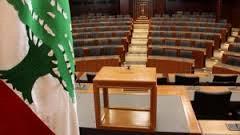Ammon News - AMMONNEWS - If the next round on May 22 fails, it will a power vacuum in a country that desperately needs leadership to deal with a spillover of violence from neighboring Syria, more than a million refugees from the civil war there, and a budget deficit close to 10 percent of the size of its economy.
Politicians say they expect disagreements over Suleiman's replacement to drag on for months after he leaves office.
Any candidate would have to get support from the two main political blocs - Shi'ite Muslim Hezbollah's March 8 alliance and the rival Sunni-led March 14 coalition - to win the necessary majority from parliament's 128 deputies.
But the two alliances support different sides in neighboring Syria, where Sunni rebels are fighting to overthrow Hezbollah ally President Bashar al-Assad, entrenching divisions in Lebanon.
Thursday's vote was called off after March 8 deputies boycotted the session, leaving it without the two-thirds quorum needed for the vote to go ahead.
Under the country's religion-based power-sharing system, the president must be a Maronite Christian, a sect that is itself divided on its support for March 8 and March 14.
Some lawmakers from the March 14 coalition have warned that if no president is elected before Suleiman's term ends they will
boycott parliament, leading to further paralysis in the country of 4 million people.
Khaled Daher, a member of parliament from March 14, said he feared Lebanese politicians "will not reach an agreement and will end up with a vacuum."
The deadlock comes two months after Prime Minister Tammam Salam ended a year-long government vacuum by winning a vote of confidence in his new cabinet.
Lebanon also has to deal with electricity outages, decaying infrastructure and public sector wage disputes that brought thousands of protesters onto the streets on Wednesday.
